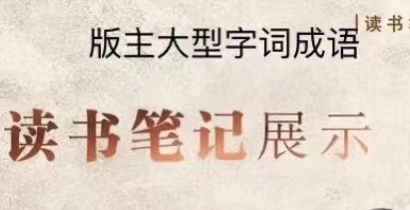not /nɔt/ adv. 不 ①接在助动词或情态动词等后面,简作n’t: This is not an apple. 这不是苹果。 I can’t do it.我不能干此事。② 和非谓语动词连用,放在其前:I beg you not to go out.我求你不要出去。 Not knowing what to do, he pretends not to know.不知道做什么,他就假装不知道。 ③ 用在think, suppose, believe, expect, hope, imagine, seem, appear及副词perhaps, probably, absolutely等后面,代表一个否定的从句:— Will he die? — I hope not.(=I hope he will not die.)“他会死吗?”“我希望不会。” — Will it rain this afternoon? — Probably not.“今天下午会下雨吗?” “大概不会。” ④与all, both, every等词连用,表示部分否定: Not all men are wise. (= All men are not wise.) 并非所有的人都聪明。He is not always here. 他并不总在这儿。 ⑤用于委婉的说法: not a few 不少; not too well (身体)不太好;not so bad 很好 not a 一个也不:Not a man was killed in the accident. 那次事故中一个人也没死。 not at all 一点也不;不要客气: — Are you hungry? — Not at all.“你饿吗?” “一点也不。” — Thank you very much. — Not at all.“多谢您。” “不客气。” not… but 不是…而是: Shakespeare was not a musician but a writer. 莎士比亚不是音乐家,而是作家。 not only…but also 不仅…而且( 连接主语时,谓语与靠近它的主语相一致。连接句子时,not only 后的句子要倒装): He’s not only my teacher but (also) my friend. 他不仅是我的老师,而且是我的朋友。She can not only sing but also dance. 她既能唱又能跳。He can speak not only French but also English. 他既能讲法语又能讲英语。As a result, not only were the lost cities recovered, but new cities were liberated. 结果不仅丢失的城市收复了,还解放了新城市。 Not only the students but also their teacher is enjoying the film. 不仅学生们在欣赏这部影片,他们的老师也在欣赏这部影片。
热门文章
-
字词成语读书笔记(万字汉语词汇工具书)
2023-04-13 -
《大树的情怀》个人回忆目录
2023-04-18 -
简明中国通史故事 (180篇)
2023-04-13 -
《中国通史故事》目录
2023-04-17 -
融贯中西/荣归真心主要作者介绍
2023-04-13









